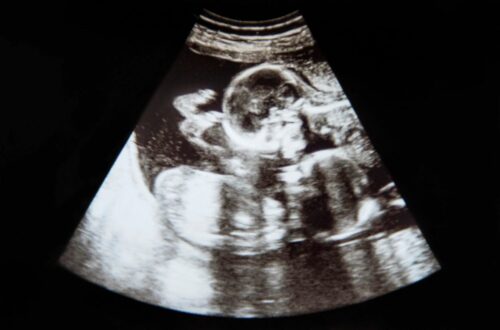“You were always wriggling” mom says. “I could never get a nappy on you without a fight”
“I still can’t stop fidgeting,” the boy says.
“I know,” chimes in dad, “I have to sit next to you at mealtimes!”
“Haha. You wriggled so much in my womb I couldn’t sleep.” Mom hugs her son. “During labor you you managed to get the cord wrapped round your neck and had to be pulled out extra quick.”
“I’m glad you made it, son”
“Wait a minute,” the abortionist interjects, “there was no “you” in the womb. “you” refers to a person, but you were not a person in the womb. You were once an it. In fact, my last sentence does not make sense. You did not exist so you couldn’t be anything. You began to exist at some time when the object from which you are made became a person. So, strictly speaking, the object moved in the womb.”
“Oh,” says mom. “But didn’t John leap with joy in Elizabeth’s womb (Luke 1:44)? An impersonal object cannot move with joy. Only persons can have joy. Doesn’t the Psalmist tell us that he was ‘knitted together’ in his mother’s womb. Listen: You [God] knitted me together in my mother’s womb (Psalm 139:13 cf. Job 31:15). The writer thinks nothing of referring to himself in the womb. It is quite ordinary to do so.”
“Well, that’s just the Bible. The authors back then didn’t know what we know now.”
“Yes, but we all talk about our children as being persons in the womb. It’s very difficult not to. Even Hillary Clinton said, ‘The unborn person does not have constitutional rights‘ and then referred to what you call ‘it’ as the ‘child’. What you are trying to say is that we should be more precise with our language. But even those who agree with you have a hard time. Now, either ordinary language has got it wrong or the entity in the womb is a person, a child. And it’s not just a matter of language. My son’s wriggly personality that he has now is the same wriggly personality he displayed in the womb.
“What you’re trying to get me to do is be a skeptic about what seems reasonable to believe: that the person I am hugging now is the same person who grew in my womb.”



